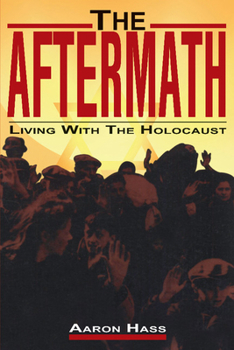The Aftermath: Living with the Holocaust
Select Format
Select Condition 
Book Overview
The Aftermath offers a perspective of how one who has lived with terror for years is able to avoid paralysis and move forward. It is a book about how people live with gnawing doubts and uncertainty concerning their past actions and inaction. It is a tale of the anguish they feel because of their first hand knowledge of the evil in their fellow human being which so unjustly struck and deprived them of what was rightly theirs. For a while the Holocaust survivor seems, in most ways, to be like you and I, they are also aware of their subterranean world which may afflict them without warning. The Aftermath offers the most comprehensive examination of the psychological impact of the Holocaust on survivors ever undertaken and covers the widest range of topics including: survivor guilt, the absence of mourning, the psychological characteristics of survivor families, a survivor's view of God, survivor's feelings about Germans as well as their own countrymen of origin, and the survivor's ongoing sense of vulnerability.
Format:Paperback
Language:English
ISBN:0521574595
ISBN13:9780521574594
Release Date:July 1996
Publisher:Cambridge University Press
Length:236 Pages
Weight:0.80 lbs.
Dimensions:0.7" x 6.0" x 9.0"
Customer Reviews
1 rating
What the world learned
Published by Thriftbooks.com User , 23 years ago
In a chapter named Vulnerabilities, Aaron Hass quotes an unnamed Holocaust survivor who asks, "What did the world learn from the Holocaust? What the world learned from the Holocaust is that you can kill six million Jews and no one will care."This comment like many others in this superb book reverberates to the bone. Hass answers a need not only of the dwindling community of survivors, but of those who, while neither survivors nor children of survivors, are nevertheless heirs to horrific pain--those Jewish children born in the shadow of the Holocaust and dressed by its memories, engulfed by a pervasive sense of loss and the need to reaffirm Jewish life. "Survivors are people, not a phenomenon," Hass writes. Their feelings endure. Given my own feelings, I suspect that these are echoed by the feelings of the Jewish people, which is only now, after a generation, beginning to comprehend the enormity of what occurred."To refer to the Holocaust as 'monstrous, inhuman event' is to miss the point," Hass concludes. "The Holocaust was imposed by men and women on other human beings. 'It was a time when there were people, not only the Germans, but the others too, what wanted to kill all the Jewish people."Unfortunately, such sentiments are still published broadly in parts of the world, without note, much less consequence. The press considers them just as unimportant now as it did in the 1930s. Hass writes, "And so most Holocaust survivors believe that it could happen again." I sadly confess, so do I. Alyssa A. Lappen





